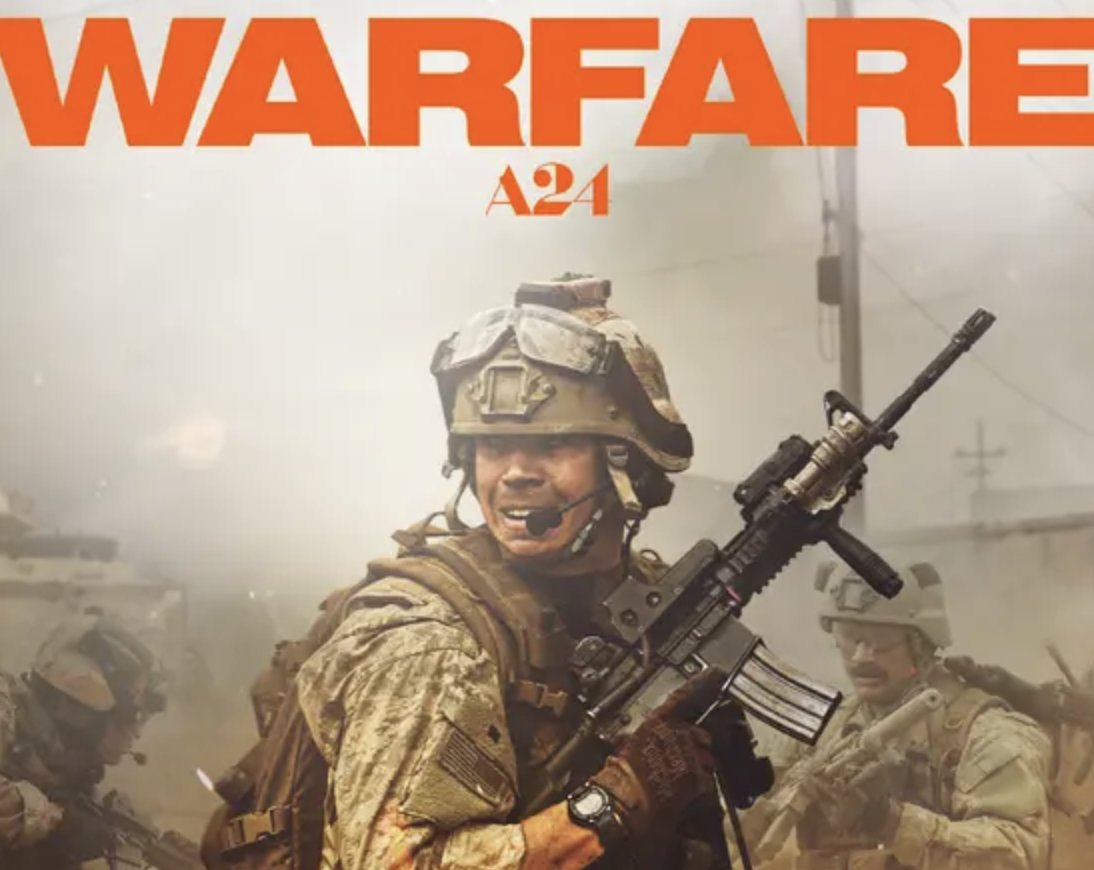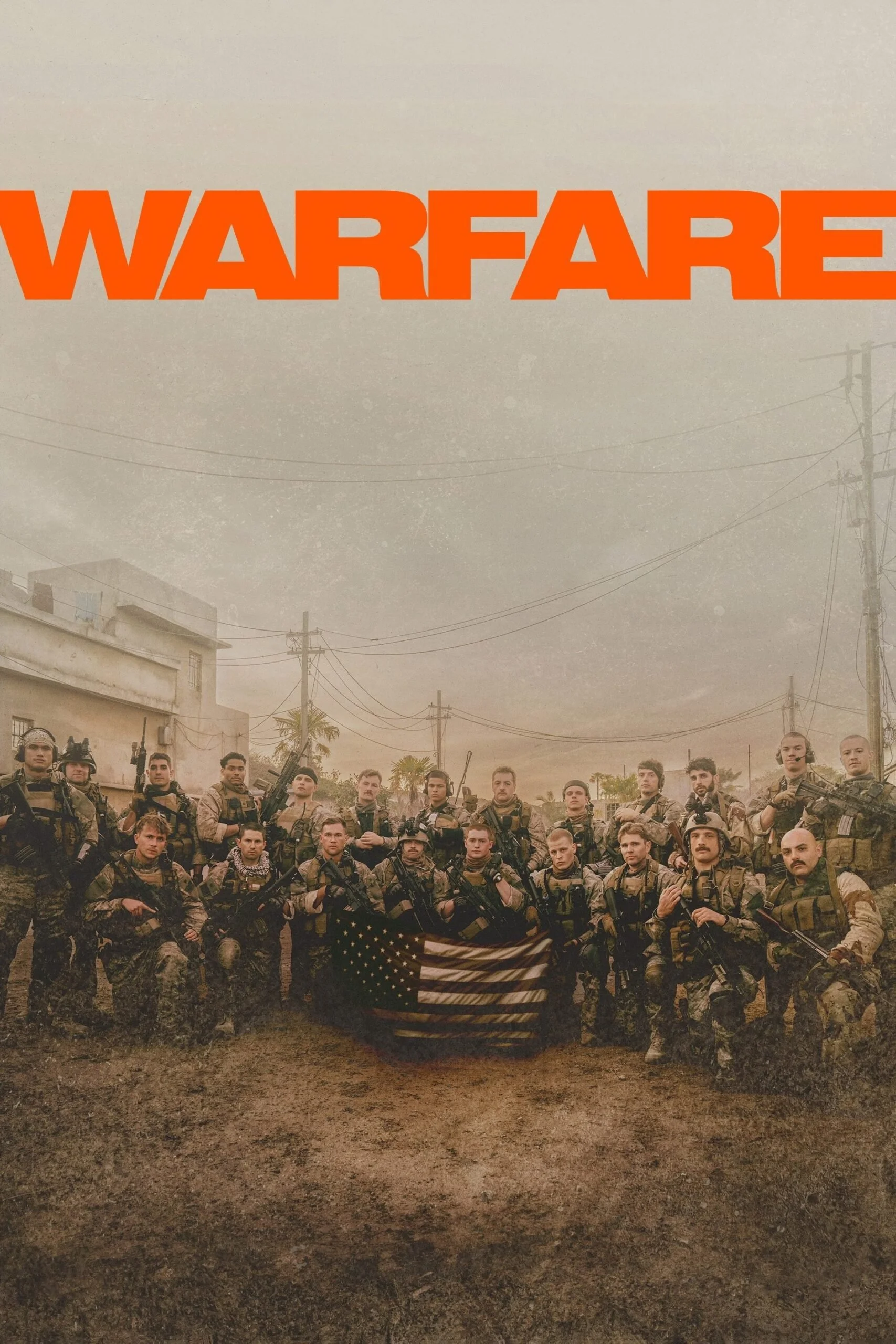Warfare movie poster. Photo by A24 Films.
Film Review: Warfare Will Leave You Shaken – And That’s The Point
Review By: Thomas Snyder, Contributing Writer | BCS Chronicle
What You Need To Know:
Alex Garland and Ray Mendoza’s war film, Warfare, is a 95 minute disturbing look at the realities of modern warfare.
The film is set Set during the Iraq War and follows a team of Navy SEALs pinned down inside a house in Ramadi.
Shot with harrowing immediacy and a highly authentic sound design, Warfare an effective anti-war film.
This reviewer gives the film a rating of 8 out of 10.
There’s a long-running idea that true anti-war films don't exist — that no matter how brutal or unflinching, war movies almost always end up glorifying violence simply by making it cinematic. With Warfare, Alex Garland and Ray Mendoza push hard against that idea. This isn’t just another gritty combat movie. It’s a 95-minute plunge into hell, stripped of traditional storytelling comforts and designed to leave you shaken, exhausted, and profoundly disturbed.
Set during the Iraq War, Warfare follows a team of Navy SEALs pinned down inside a house in Ramadi. But “follows” might not even be the right word. There’s no exposition, no clear mission objectives, and barely any character development. Even with a cast that includes Will Poulter, Cosmo Jarvis, Charles Melton, and Kit Connor, the men all blur together into a mass of panic, adrenaline, and survival instinct. You could watch the end credits — which pair the actors with their real-life counterparts — and still struggle to tell them apart. That’s very much the point.
The film’s commitment to realism is total. Combat is messy, fast, and almost incomprehensible. The dialogue is mostly urgent radio chatter, screams of the wounded, or quick, barked commands. The violence is unsparing: severed limbs, blood pooling across floors, guttural cries that will stick with you long after the credits roll. But none of it feels stylized or exaggerated. Garland and Mendoza (the latter a former Navy SEAL who lived through the events depicted) are after something much more raw — the paralyzing fear, the confusion, the sense of complete detachment from any larger meaning.
There are flashes of humanity, but they come in gut-punch moments. Early on, we catch glimpses of the Iraqi family whose house the SEALs have taken over. They're treated as background noise by the soldiers, and eventually by the movie itself — a sharp, pointed commentary on how civilians are often erased in war stories. Their presence, though minimal, lingers uneasily throughout the film.
Warfare movie poster. Photo by A24 Films.
Meanwhile, the enemy remains practically invisible. We see insurgents only in scattered, fleeting glimpses — through rifle scopes, behind walls of smoke. It's a bold choice that makes the combat feel even more nightmarish. There’s no catharsis here, no "good guy vs. bad guy" clarity. Just terror, chaos, and bodies dropping on both sides.
If Garland's last film, Civil War, was about confronting Americans with the horrors they usually associate with "other" countries, Warfare goes one step further: it obliterates any comfortable distance between the audience and the battlefield. Watching this movie feels less like being entertained and more like surviving something.
Of course, that makes Warfare a tough sit. At times, it’s almost numbing. There’s little variation in the action, no clear narrative arc to hold onto. Some viewers may find themselves checking out emotionally, simply as a defense mechanism. But that, too, feels intentional. Garland and Mendoza aren’t interested in making you care about these soldiers as individuals. They’re interested in showing you what war actually looks like — and how quickly even the most highly trained and motivated fighters can be reduced to frightened, broken people.
Shot with harrowing immediacy and bolstered by some of the most brutally authentic sound design you’ll hear all year, Warfare is as effective an anti-war film as we've gotten in a long time. It's not about winning or losing. It's about what gets lost in the process — humanity, morality, reason itself.
Bleak, relentless, and often overwhelming, Warfare isn’t here to thrill you. It’s here to haunt you. And it succeeds.


